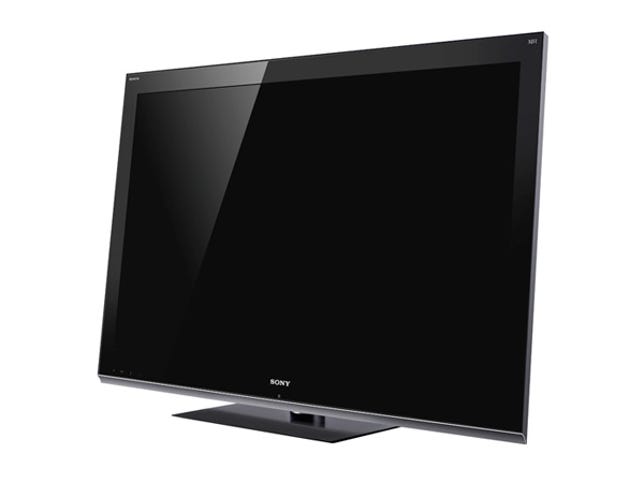Sony has made one thing clear at this year’s CES in Las Vegas: it wants to be the “undisputed leader in 3D”, and to do this it has unveiled a suite of new Bravia TVs and other 3D services.

(Credit: Sony)
“It is my pleasure to introduce what we believe will forever change the way that consumers are entertained at home: Sony’s new 3D Bravias for 2010,” said Sony president Stan Glasgow at Sony’s press conference today.
The flagship of Sony’s Bravia 3DTV range is the LX900, which features 3D integration and is packaged with two pairs of active shutter glasses and a built-in transmitter. It’s an edge-lit LED LCD series and will come in sizes up to 60 inches.
A further two 3D-capable models, the HX900 and EX900, will also be released but users will need to buy the active shutter glasses and 3D Sync Transmitter separately.
The Bravia TVs feature the new shallow bezel called “Monolithic Design” (available in gloss or matte black) and is designed to be viewed at a six-degree upward slant, which Sony says makes it more compatible with low TV stands. Australian pricing and availability is yet to be announced.
The most striking non-3D model is the Monolithic Design-sporting NX800, which also features edge LED backlighting, integrated Wi-Fi and an unusual-looking “slab” stand.
The Blu-ray 3D specification was officially ratified last month, and Sony is hoping to bring 3D to the PlayStation 3 around the globe in 2010 via a firmware update. This will make the console 3D-compatible with existing games and the inevitable 3D Blu-ray discs.
Sony announced two new content deals at the event: the company would be working with ESPN to produce a new dedicated “ESPN 3D” channel, and also producing a “3D cable network” partnering with IMAX and Discovery.
Sony’s press conference began with a 3D upscaled clip of Jimi Hendrix at Woodstock and also featured a live appearance by Taylor Swift in “3D”, but unlike the VMA music awards there were no unplanned interruptions.
In non-3D content news, Sony also announced it will open up its PSN network and premium video services for internet-enabled Bravia, Blu-ray players and Windows-enabled PCs in the US in February. No Australian details have been announced.


(Credit: Sony)




